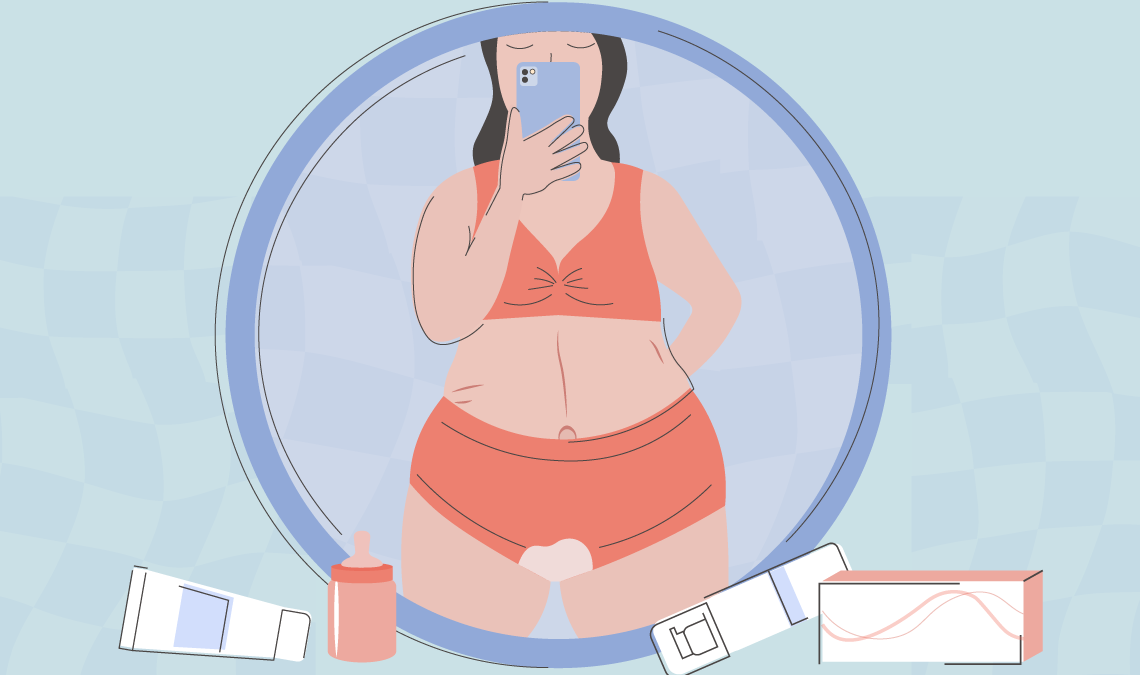After giving birth, your body continues to go through significant changes as it heals and adjusts. One common occurrence is postpartum vaginal discharge, known as lochia, which can last for several weeks. Understanding the different types of discharge, what’s normal, and when to seek medical advice can help you feel more prepared during this period.
In this blog, we’ll break down the stages of vaginal discharge post-pregnancy, outline what you can expect, and highlight when to worry. Plus, we’ll introduce products like Ultra Safe Night Pads and Overnight Period Panties, which offer comfort and reliable protection during this time.
What is Lochia?
Lochia refers to the vaginal discharge that occurs as your body heals after childbirth. It consists of blood, mucus, and tissue from the uterus and is similar to a heavy period at first. This process is entirely natural, as your uterus sheds its lining and returns to its pre-pregnancy size. Lochia comes in different stages, and each phase will look and feel slightly different.
The Stages of Postpartum Discharge
Lochia typically progresses through three stages:
1. Lochia Rubra (Days 1–4 Postpartum)
- Appearance: Bright red, heavy bleeding with small clots.
- Consistency: Thick, resembling a heavy menstrual period.
- Duration: This phase usually lasts about 3-4 days but can extend up to a week.
- What’s Normal?: Heavy bleeding at this stage is completely normal, but you may need to change pads frequently.
During this phase, you’ll need a product that can handle a heavier flow. Ultra Safe Night Pads are an excellent choice, offering a rapid absorbent core to manage heavy bleeding while their enhanced leak-proof design keeps you feeling secure throughout the night. They’re also breathable and super soft, providing comfort without irritating sensitive skin. Plus, they’re made without fragrance, dyes, or phthalates, ensuring you avoid exposure to unnecessary chemicals during this crucial recovery period.
2. Lochia Serosa (Days 4–10 Postpartum)
- Appearance: The discharge lightens, turning pinkish or brownish.
- Consistency: Thinner and more watery compared to the earlier stage.
- Duration: This phase typically lasts for about a week.
- What’s Normal?: Lighter flow is normal, though you may still pass some small clots.
As your flow becomes lighter, you may not need as much absorption power, but comfort is still key. For peace of mind during this stage, our Overnight Period Panties offer excellent protection. Their 360-degree protection and 25% ultra-absorbent core make them perfect for a worry-free night’s sleep. Soft, rash-free, and breathable, they ensure comfort while being free from chemicals like phthalates, fragrances, and dyes.
3. Lochia Alba (Days 10–6 Weeks Postpartum)
- Appearance: The discharge becomes yellowish or white.
- Consistency: Light and almost mucus-like.
- Duration: This final stage can last up to 6 weeks after delivery.
- What’s Normal?: The discharge will become progressively lighter and less frequent, often tapering off by the sixth week.
By this stage, lochia resembles more of a light discharge than menstrual flow. While your body’s healing process is coming to an end, it’s still important to use comfortable, absorbent products. Overnight Period Panties provide just the right balance of absorbency and comfort, ensuring you stay protected without feeling bulky.
When to Worry: Signs You Should See a Doctor
While postpartum discharge is a normal part of recovery, there are certain signs that might indicate a problem. Be sure to reach out to your healthcare provider if you notice:
- Excessive bleeding: If you’re soaking through a pad in less than an hour or passing large clots (larger than a golf ball), this could be a sign of postpartum hemorrhage.
- Foul-smelling discharge: If your lochia has a strong or unpleasant odor, it could indicate an infection.
- Return to bright red bleeding: If your discharge becomes bright red again after it has lightened, or if bleeding increases after initially decreasing, it’s important to consult your doctor.
- Fever or chills: These may indicate an infection, especially if accompanied by foul-smelling discharge or pelvic pain.
How to Manage Postpartum Discharge
Managing postpartum discharge requires products that offer both comfort and reliability. Whether you prefer pads or period panties, having options that absorb well and protect against leaks is essential for your peace of mind during recovery.
Ultra Safe Night Pads
Our Ultra Safe Night Pads are designed to provide rapid absorbent core technology, making them perfect for handling heavy postpartum bleeding. With an enhanced leak-proof design, they ensure that you can rest comfortably without worrying about leaks. These pads are also breathable and super soft, offering maximum comfort without irritating your skin. Plus, they’re made without any fragrances, dyes, or phthalates, keeping things natural and gentle.
Overnight Period Panties
For ultimate protection, try our Overnight Period Panties. Offering 360-degree protection and a 25% ultra-absorbent core, they are ideal for even the heaviest flow. Their rash-free and breathable design ensures you remain comfortable throughout the night. Like our pads, these panties are also free from harmful chemicals, including phthalates, fragrances, and dyes, ensuring a safer, irritation-free experience.
Conclusion
Postpartum discharge is a natural and essential part of recovery after childbirth, as your body heals and returns to its pre-pregnancy state. Understanding the stages of lochia and what to expect can help you feel more in control during this transition. By using high-quality, absorbent products like Ultra Safe Night Pads and Overnight Period Panties, you can manage this phase with greater comfort and confidence.
If you experience anything unusual, such as excessive bleeding or signs of infection, don’t hesitate to reach out to your healthcare provider. Knowing when to seek help is just as important as understanding what’s normal.
With the right knowledge and products, the postpartum period can be a more manageable, comfortable experience as your body heals.



